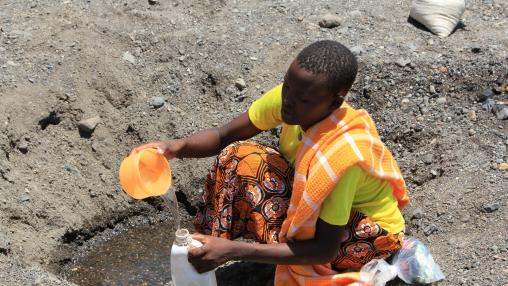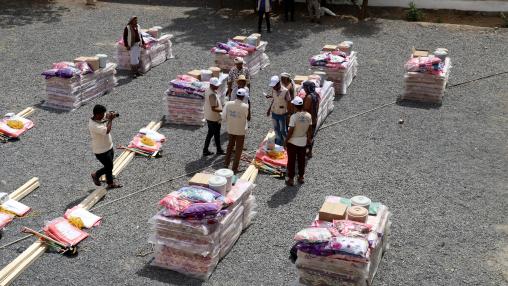
Food and Nutrition Crises Burgeon in Face of Conflict, Funding Cuts: GRFC Mid-Year Update Released
Hunger and food crisis have reached catastrophic levels in multiple places around the world, according to the Global Report on Food Crises Mid-Year Update. Famine has been confirmed in the Gaza Strip and the Sudan, with parts of South Sudan at risk of famine and Yemen, Haiti, and Mali experiencing catastrophic levels of hunger.
In all, 1.4 million people faced IPC Level 5 (Catastrophe) food insecurity and hunger as of August 2025.
Yemen: Acute Food Insecurity Situation for May - August 2025 and Projection for September 2025 – February 2026 (partial analysis)

IPC reports escalating food crisis in Yemen
According to the Integrated Food Security Phase Classification (IPC) Technical Working Group in Yemen, Governement of Yemen (GoY)-controlled areas of the country have seen a significant and rapid increase in acute malnutrition. By the end of this year, over 118,000 people are expected to be experiencing severe acute malnutrition. This represents an increase of 34 percent from 2023, according to the IPC.
IPC Yemen Alert - December 2020
FEWS NET Yemen Food Security Alert - May 2021

From Famine to Food Security
Food crisis and famines continue to plague many developing countries. Armed conflict and prolonged drought have left around 20 million people at a risk of starvation and death in Somalia, South Sudan, Yemen, and Nigeria, while several other African nations also currently face with food insecurity, largely as a result of climate-driven weather events. An estimated $4.4 billion in aid is needed to address these crises.

FEWS NET Releases Food Security Brief for North Africa and the Middle East
The Famine Early Warning Systems Network (FEWS NET) has released a food security brief for North Africa and the Middle East which examines food price trends in these areas. Increasing food prices are expected to have a stronger impact among populations where chronic food insecurity is more widespread, such as Pakistan, Yemen, Sudan, Morocco, Syria, Egypt, and Iran.